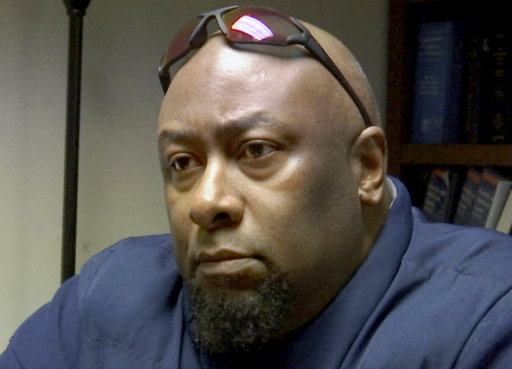DETROIT (AP) — During Supreme Court nominee Neil Gorsuch’s Senate confirmation hearings, one case came up repeatedly: A truck driver was fired for leaving his trailer of meat on the side of an Illinois road after breaking down on a frigid night in 2009, fearing he’d freeze to death.
The federal appeals court judge last year dissented from a ruling ordering a trucking company to rehire Alphonse Maddin. Gorsuch argued he had to determine whether the trucking company’s decision to fire Maddin was legal, not “wise or kind.”
In Detroit, where Maddin lives and 400 miles away from that Capitol Hill hearing room, he finds it “surreal” his personal story has been the focus of national debate — and is now part of the discussion on whether someone ascends to the nation’s highest court.
Assured of support from majority Republicans, Gorsuch appears primed to join the bench. But Maddin, 48, is using his unexpected platform to render an opinion on a jurist he believes put ideology above human interest in his case.
“It makes me consider what would the consequences be if my case had gone to the Supreme Court level and had been adversely impacted by his ideology?” Maddin said Wednesday from the conference room of the lawyer who successfully argued on the former truck driver’s behalf.
Maddin’s case has been cited by many Democrats and other critics, who have argued Gorsuch tends to favor business interests over ordinary Americans. Gorsuch counters there are many cases when he has ruled for the little guy, when the law has been on the judge’s side.
The confirmation hearing will end with outside witnesses talking about Gorsuch. A committee vote then is expected April 3, with a Senate floor vote later that same week. Republicans control the Senate 52-48, so it would require eight Democrats to move Gorsuch past procedural hurdles that require 60 votes.
Earlier this month in Washington, Maddin joined Senate Minority Leader Chuck Schumer and others to share their concerns. Being an activist certainly wasn’t Maddin’s plan after enduring what he described as a “seven-year battle.”
He declined to return to TransAm Trucking Co., worked several jobs that “didn’t pay much,” and earned bachelor’s and master’s degrees — the latter focusing on aeronautics.
Last August, he happily read the majority decision of the appeals panel, which held that federal law protects drivers from dismissal when they refuse to operate an unsafe vehicle. He paid little attention to the dissent, until he learned President Donald Trump had nominated Gorsuch to the Supreme Court.
Gorsuch wrote the Surface Transportation Assistance Act, which bars companies from firing a driver who “refuses to operate” an unsafe truck, didn’t apply to Maddin. Gorsuch reasoned that the truck driver was operating the truck by driving off, not refusing to operate it.
Writing for the majority, Judge Michael Murphy said the law could easily be seen as applying to drivers, such as Maddin, who are at risk by staying put. Murphy also directly challenged Gorsuch’s narrow, literal meaning of “operate.”
“A trucker was stranded on the side of the road, late at night, in cold weather, and his trailer brakes were stuck,” Gorsuch, a federal judge in Denver, wrote in his dissent. “He called his company for help and someone there gave him two options. He could drag the trailer carrying the company’s goods to its destination (an illegal and maybe sarcastically offered option). Or he could sit and wait for help to arrive (a legal if unpleasant option). The trucker chose None of the Above, deciding instead to unhook the trailer and drive his truck to a gas station. In response, his employer, TransAm, fired him for disobeying orders and abandoning its trailer and goods.”
The passage from Gorsuch struck a nerve with Maddin, who said it understated the extreme cold of the night and the “survival mode” he adopted. He said his torso went numb, he couldn’t feel his feet and felt himself “fading.”
“It seemed like an attempt to avoid the human element,” Maddin said. “When you think something that’s a legal matter, that nature and magnitude, I would think that he would have referred to me … by name. He refers to me simply as a trucker.”
___
Follow Jeff Karoub on Twitter at http://twitter.com/jeffkaroub . His work can be found at http://bigstory.ap.org/author/jeff-karoub .
Copyright 2017 The Associated Press. All rights reserved. This material may not be published, broadcast, rewritten or redistributed.







“Unpleasant” isn’t a synonym for potentially fatal you unmitigated ass.
“It seemed like an attempt to avoid the human element,” Maddin said.
It seems more like an attempt to be a dutiful corporatist.